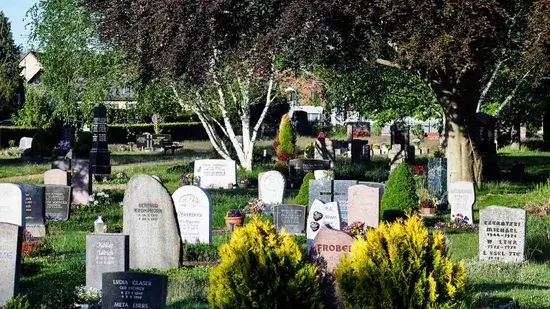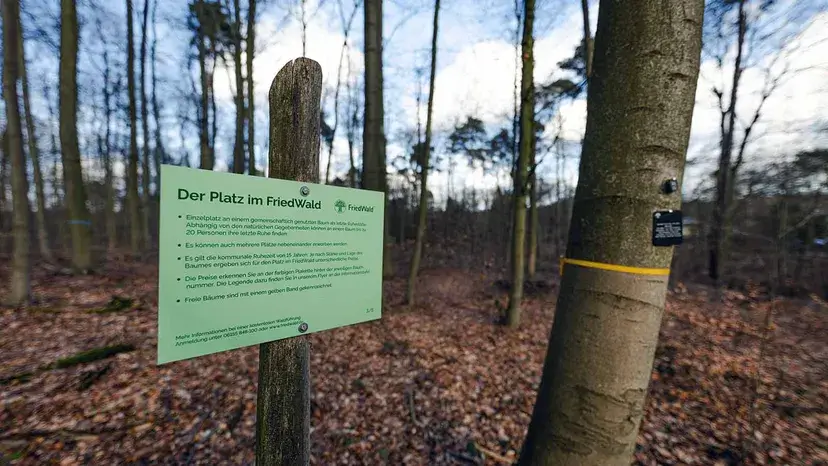What's with Germany's strict burial regulations?

Little remains untouched in Germany's quest for efficiency and safety for its citizens. Everything from German board games to the internationally recognized Autobahn has its own set of strict rules.
But overly strict regulations extend even to laws involving a deceased person's funeral and burial rights.
Content
- Obligations of the Cemetery
- Cemetery plots are rented
- Finding Ways to Get Around Regulations
Obligations of the Cemetery
Unless your loved one lives – or dies – in Bremen, it's against the law to spread your creams anywhere in Germany (so forget about spreading Grandpa in his favorite fishing pond or Grandma in her garden). A law from 1934, Der Friedhofszwang , literally means “ cemetery obligation ” and states that all human remains, whether in a casket or an urn, must have a final resting place in a cemetery.
The law initially aimed to protect public health because there were fears that decomposing bodies buried in any ancient site could cause an epidemic. However, this does not make sense for the ashes of cremated individuals, where the high-temperature cremation process decomposes any microorganisms. So why are cremains also regulated? Because Germany wants to ensure that everyone has the right to mourn publicly.
Descriptions of the law say that an official place of mourning is a culturally significant part of the grieving process and must be available to anyone. There are no private graves or cemeteries; all must be buried in a public cemetery or columbarium. But here’s the problem: For casket burials, a cemetery is not the “final” resting place.
Cemetery plots are rented
Due to space limitations, many German cemeteries control how long a coffin – and its occupants – can remain in a cemetery, generally between 10 to 30 years. Cemetery land is essentially leased to families. After the remains decompose (assuming soil conditions are suitable, which is a growing problem in German cemeteries), the lease of the land becomes available for renewal by the family. If they decide not to pay or cannot pay, a new “resident” moves in.
Finding Ways to Get Around Regulations

The high costs of mandatory burial (between 5,000 euros to 15,000 euros or approximately 4,900 to 14,800 dollars) and the desire to spread cremains in preferable locations are causing some German citizens to transport the bodies of their loved ones to neighboring countries, in a relatively new practice called “corpsing”. tourism” or “cremation tourism”.
Regulations on scattering ashes or burial are much more relaxed in countries like Switzerland and the Netherlands. As private individuals in Germany are unable to handle cremains, it is becoming more popular for them to send the bodies of their loved ones to a country where they are cremated and returned to their families, where they can scatter the cremains as they wish.
One of the only options families have for spreading cream in Germany is a burial at sea. Using a biodegradable urn and only in very specific locations in the Baltic and North Seas can cremains be spread. More recently, however, families may choose to scatter the ashes in forests or plant them in the roots of a tree and honor them with a plaque hanging from the tree trunk, as in Berlin's FriedWald Cemetery.
Many families and local governments are calling on the German government to drop its strict regulations for things like transportation and architecture and finally allow families to mourn and celebrate the lives of their loved ones in meaningful and healing ways.
Now that's sad
Most cemeteries in Germany have strict rules about the appearance of tombstones. No pottery photos may be placed on headstones, and many cemeteries prohibit toys on children's graves or specific plants. Only a few details can be included on headstones.




